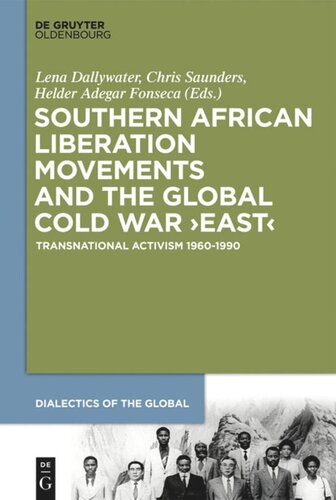

Most ebook files are in PDF format, so you can easily read them using various software such as Foxit Reader or directly on the Google Chrome browser.
Some ebook files are released by publishers in other formats such as .awz, .mobi, .epub, .fb2, etc. You may need to install specific software to read these formats on mobile/PC, such as Calibre.
Please read the tutorial at this link: https://ebookbell.com/faq
We offer FREE conversion to the popular formats you request; however, this may take some time. Therefore, right after payment, please email us, and we will try to provide the service as quickly as possible.
For some exceptional file formats or broken links (if any), please refrain from opening any disputes. Instead, email us first, and we will try to assist within a maximum of 6 hours.
EbookBell Team

5.0
48 reviewsIn the global context of the Cold War, the relationship between liberation movements and Eastern European states obviously changed and transformed. Similarly, forms of (material) aid and (ideological) encouragement underwent changes over time. The articles assembled in this volume argue that the traditional Cold War geography of bi-polar competition with the United States is not sufficient to fully grasp these transformations. The question of which side of the ideological divide was more successful (or lucky) in impacting actors and societies in the global south is still relevant, yet the Cold War perspective falls short in unfolding the complex geographies of connections and the multipolarity of actions and transactions that exists until today. Acknowledging the complexities of liberation movements in globalization processes, the papers thus argue that activities need to be understood in their local context, including personal agendas and internal conflicts, rather than relying primarily on the traditional frame of Cold War competition. They point to the agency of individual activists in both "Africa" and "Eastern Europe" and the lessons, practices and languages that were derived from their often contradictory encounters.
In Southern African Liberation Movements, authors from South Africa, Portugal, Austria and Germany ask: What role did actors in both Southern Africa and Eastern Europe play? What can we learn by looking at biographies in a time of increasing racial and international conflict? And which "creative solutions" need to be found, to combine efforts of actors from various ideological camps? Building on archival sources from various regions in different languages, case studies presented in the edition try to encounter the lack of a coherent state of the art. They aim at combining the sometimes scarce sources with qualitative interviews to give answers to the many open questions regarding Southern African liberation movements and their connections to the "East".